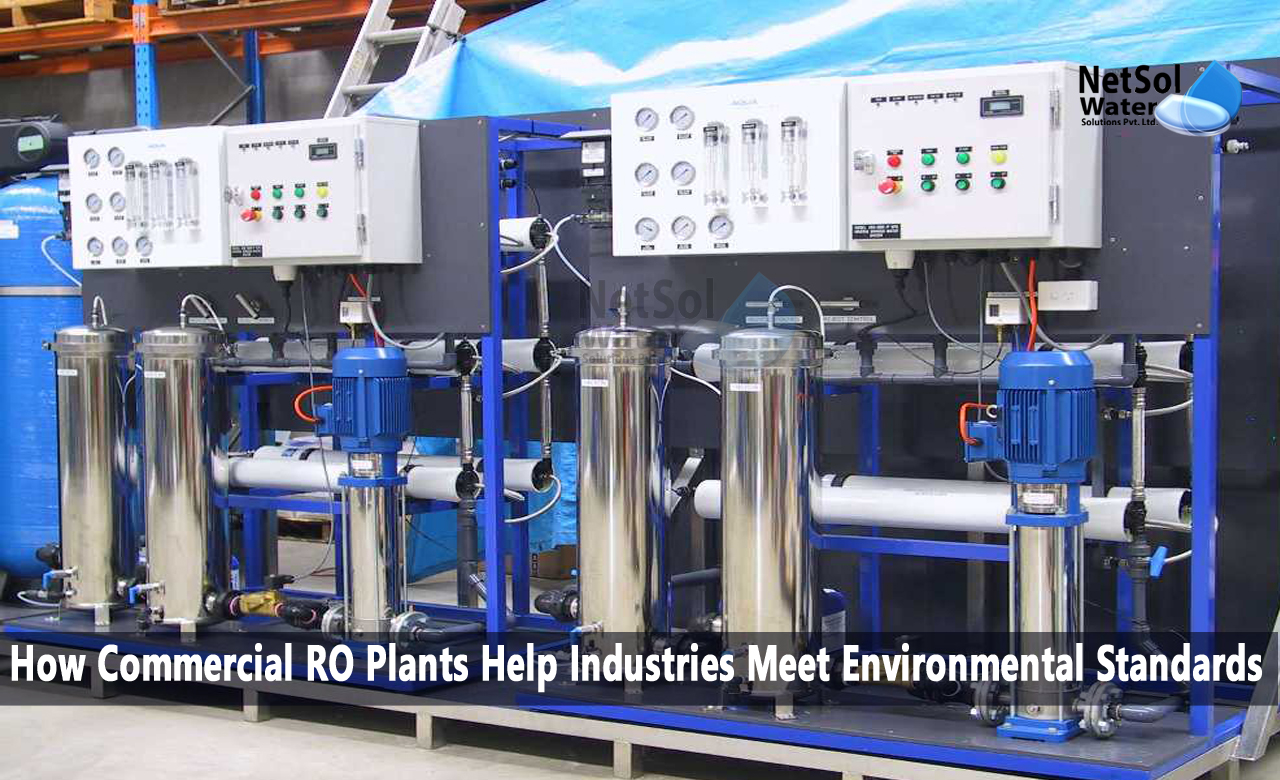How Commercial RO Plants Help Industries Meet Environmental Standards?
Water is an essential resource for industries, and it is used in various processes, including manufacturing, cleaning, and cooling. However, the use of water in industrial processes can also result in the generation of wastewater, which can contain contaminants and pollutants harmful to the environment. This is where commercial Reverse Osmosis (RO) plants come in, helping industries meet environmental standards by treating and reusing wastewater.
In this blog, we will explore how commercial RO plants help industries meet environmental standards.
1. Compliance with Regulations: Industries are subject to various environmental regulations that govern the discharge of wastewater. These regulations set strict limits on the concentration of contaminants and pollutants in wastewater that can be discharged into the environment. Commercial RO plants can help industries meet these regulations by treating wastewater to remove contaminants and pollutants, ensuring that the wastewater meets the required standards before it is discharged into the environment.
2. Reduction of Environmental Impact: The discharge of untreated or inadequately treated wastewater can have significant environmental impacts, including contamination of water bodies, harm to aquatic life, and damage to ecosystems. Commercial RO plants can significantly reduce the environmental impact of industrial wastewater by treating it to remove contaminants and pollutants, ensuring that the treated wastewater is safe for discharge into the environment.
3. Resource Conservation: Water is a valuable resource, and industries are increasingly recognizing the importance of conserving it. Commercial RO plants can help industries conserve water by treating and reusing wastewater, reducing the need for freshwater intake and reducing the volume of wastewater discharged into the environment.
4. Cost Savings: The use of commercial RO plants can also result in cost savings for industries. By treating and reusing wastewater, industries can reduce their freshwater intake, which can be costly. Additionally, by meeting environmental regulations and reducing their environmental impact, industries can avoid fines and penalties that can be costly.
5. Versatility: Commercial RO plants are versatile and can be used in various industrial applications, including manufacturing, food and beverage production, and pharmaceuticals. They can treat wastewater from various sources and can be customized to meet the specific needs of the application.
6. Continuous Operation: Commercial RO plants can operate continuously, ensuring that the treatment process is always active and wastewater is continuously treated. This continuous operation ensures that the treated wastewater is of a consistent quality, meeting the required environmental standards.
7. Efficient Water Treatment: RO plants use a highly efficient water treatment process that utilizes a semipermeable membrane to remove impurities from wastewater. This technology is highly efficient and can remove up to 99% of contaminants and pollutants from wastewater, resulting in high-quality treated water.
8. Scalability: Commercial RO plants are scalable and can be designed to meet the specific needs of the application. They can be installed in small-scale applications or can be designed for large industrial applications. This scalability ensures that industries can choose the appropriate size and capacity of the RO plant to meet their specific needs.
9. Minimal Disposal of Waste: RO plants produce minimal waste, reducing the amount of waste that needs to be disposed of. The only waste generated by RO plants is the concentrated brine solution, which can be disposed of safely through appropriate disposal methods.
10. Energy Efficiency: Commercial RO plants have become increasingly energy-efficient, reducing their environmental impact and energy costs. Advanced energy recovery devices, such as pressure exchangers and turbine systems, can recover energy from the RO process and reuse it within the plant. Additionally, advancements in membrane technology have reduced the energy required to operate RO plants.
11. Innovation: The development of innovative technologies, such as the Internet of Things (IoT) and Artificial Intelligence (AI), has revolutionized the way RO plants operate. IoT devices can monitor and control the RO plant remotely, ensuring optimal performance and reducing downtime. AI can analyse data collected from the plant and optimize the treatment process, further improving the efficiency and effectiveness of RO technology.
Conclusion:
In conclusion, commercial RO plants play a vital role in helping industries meet environmental standards by treating and reusing wastewater. They offer efficient water treatment, are scalable, and produce minimal waste. Additionally, they are increasingly energy-efficient and benefit from innovative technologies such as IoT and AI. With increasing pressure to reduce environmental impact and conserve resources, commercial RO plants are a crucial tool for industries to meet these goals while continuing to operate efficiently and sustainably.
For any other support, inquiries, or product purchases, call on +91-9650608473 or email at enquiry@netsolwater.com



